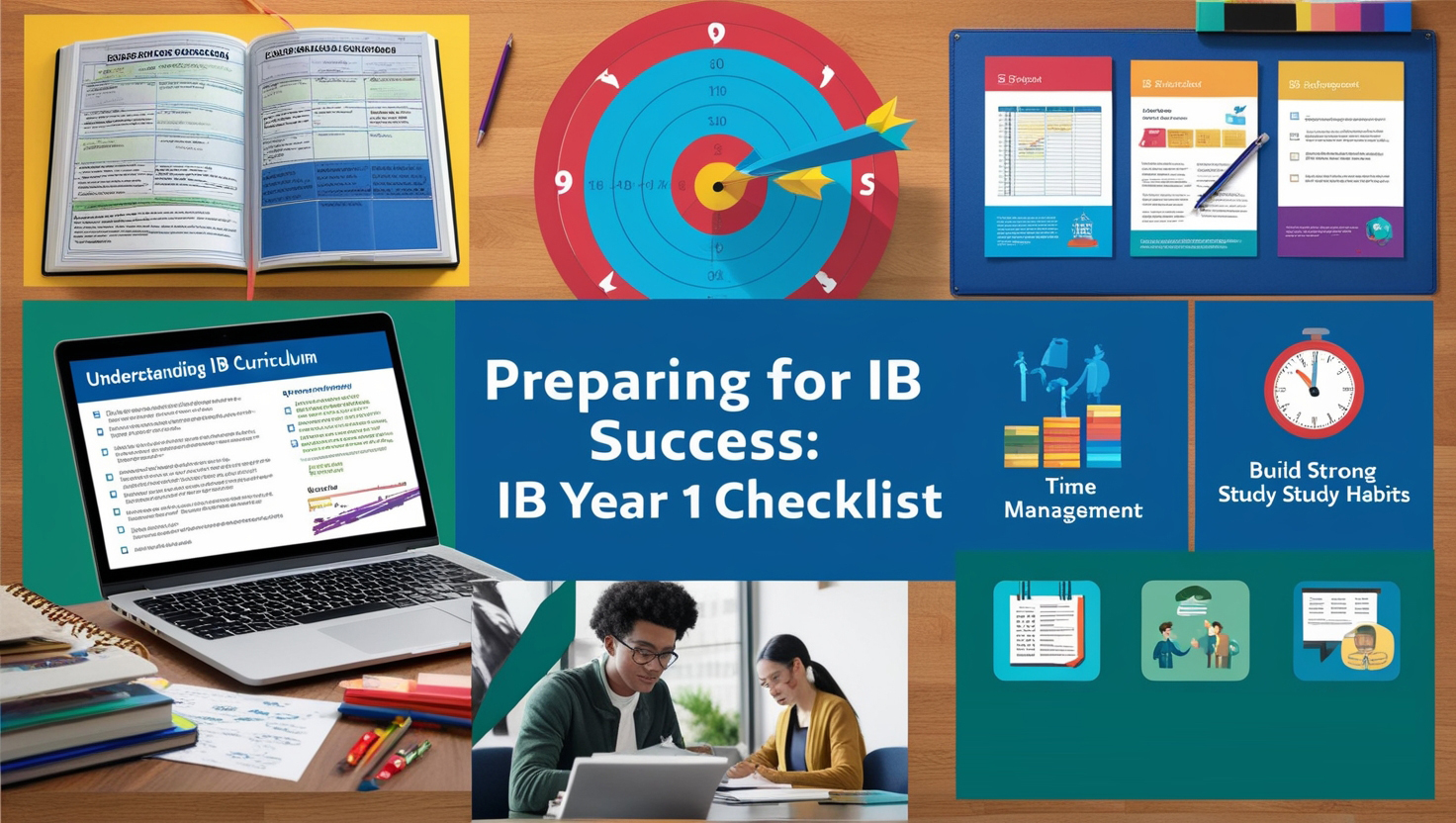Joining the International Baccalaureate (IB) programme can be an exciting yet challenging stage for many students. In your journey through IB, starting in the right way is essential. Year 1 of the IB programme builds a foundation that ensures better performance in Year 2 and beyond. Here’s a comprehensive checklist to help you navigate this critical period. Be well-prepared for what lies ahead.
The rigour and breadth of the IB curriculum encompass six subject groups: Language and Literature, Language Acquisition, Individuals and Societies, Sciences, Mathematics, and the Arts. Familiarise yourself with the subjects you've chosen and understand the requirements and expectations for each. The core components include the Extended Essay, Theory of Knowledge (TOK), and Creativity, Activity, and Service (CAS).
For Year 1, establish academic goals or personal goals. What grades do you aim for? Are there particular universities or courses you are aiming at higher studies? Setting clear targets will guide you on what to do throughout the year. Split your goals into smaller manageable tasks that keep you focused on completing them in time.
Time management is essential for succeeding in the IB programme. Develop a study timetable that strikes a balance between academics, co-curricular activities, and personal time. Prioritise duties based on deadlines and significance. Use planners, calendars, or applications to organise your schedule so that enough time is allocated for studying, revising, or resting.
Establishing good study habits early on will pay off throughout the IB programme. Experiment with various study techniques, such as active note-taking, group discussions, or spaced repetition, until you find those that work best for you. Keep track of assignments with a planner or app while reminding yourself about due dates by placing them around calendar/timetable apps on your phone/tablet/iPad/computer, etc. It may also involve remembering key ideas from lectures and textbooks through regular revisions.
Whenever you face challenges or need clarification, do not hesitate to seek support from your teachers, classmates, or mentors. Your teachers have the necessary knowledge, expertise, and material resources to help you better understand a given course concept. Collaborating with peers via study groups or discussion forums is another way of enriching personal understanding and gaining diverse insights into various subjects.
The Extended Essay, Theory of Knowledge (TOK), and Creativity, Activity, and Service (CAS) are core components of your IB programme, which foster critical thinking skills, inquiry learning skills and personal development. Investigate potential topics for your Extended Essay in good time to ensure assistance from your supervisor. Participate actively in TOK discussions/reflections to deepen understanding of frameworks of knowledge and points of view. Get involved in CAS activities that match your interests while fulfilling the Programme participation requirements.
To maintain academic honesty, ensure observance of IB policies, guidelines, and assessment criteria. Keep checking the IB website, talking to your instructors, and taking part in school or IB workshops/ info sessions. Familiarise yourself with grade descriptors particular to each subject, thus helping tailor one’s approach to maximise one's chances of success at assignments and exams.
Even so, for the overall wellness and success of the IB programme, you must be academically successful and keep a balanced lifestyle. Engage in activities that rejuvenate your mind, body and spirit, whether exercise, hobbies or time spent with loved ones. Learn about self-care and stress management techniques that could help you deal with the pressures of the course.
Regularly reflect on your progress, strengths and weaknesses throughout Year 1. What approaches have been fruitful? What obstacles have you faced, and how can you overcome them? Be open to any feedback others give you to improve your approach when necessary. Look at mistakes as opportunities for growth and understanding while showing resilience in case unexpected things happen.
Year 1 of the IB programme is an exciting transformative expedition that sets the path for future academic and personal pursuits. Follow this checklist while fostering key abilities like time management, effective study habits, and self-reflection, which will enable smooth navigation through the challenges presented by the IB programme.
© Knowledgeum Academy
